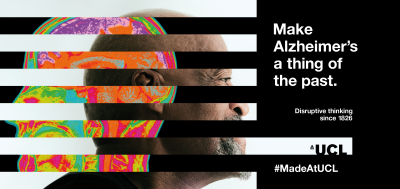UCL Queen Square Institute of Neurology is one of the world's largest, most productive and highest-impact neuroscience centres.
More than 80% of UCL’s neuroscience research was rated world-leading or internationally excellent in the last REF. Our mission is to translate neuroscience discovery research into treatments for patients with neurological diseases. Our research spans the whole spectrum of basic and clinical research into neurological disorders, and we have extensive collaborations with both the UCL Neuroscience Domain and the National Hospital for Neurology and Neurosurgery.
Please also see the following pages for further information on specific areas of research:
- Research departments
- Research profiles
- Research Groups and Themes
- Research news
- Research centres
- Clinical divisions
Our research excellence
- UCL is the top-rated university in the UK for research power, and we are home to one of the largest group of neuroscience experts in the world
- UCL is 1st in Europe and 2nd in the world for neuroscience and behaviour, based entirely on quantitative data relating to scientific papers (2020 National Taiwan University report)
- UCL is 1st in Europe and 2nd worldwide for citations in neuroscience and behaviour, with more than twice as many published papers as any other European university (InCites Essential Scientific Indicators 2020)
- UCL is 1st for neuroscience in the REF, with more than 80% of our research rated as world-leading (4*) or internationally excellent (3*) (UK’s Research Excellence Framework). Please see our REF2014 news item for further details.
- 12 of our professors are named as being among the most influential academics in the world (Clarivate Web of Science’s ‘Highly Cited Researchers 2020’). Please see our news item for further details.
- We are home to a Nobel Prizewinner (James Rothman) and Professor Ray Dolan was awarded the Brain Prize in 2017, followed by Professors John Hardy and Bart De Strooper in 2018. It was unprecedented for academics from the same institution to be awarded the coveted prize two years in a row. Please see our news item for further details.
- Neuroscience accounts for more than 33% of UCL’s entire research income, with 130 principal investigators leading our research
- We are the hub of the UK Dementia Research Institute (UK DRI), the single biggest investment the UK has ever made in dementia thanks to £290 million from founding funders the Medical Research Council, Alzheimer’s Society and Alzheimer’s Research UK
In the calendar year 2019, Institute staff published 1727 papers; 71 were published in the top 50 of all scientific journals (ranked by ESI impact factors), including Nature, Science, Lancet, BMJ and NEJM
Impact case studies (from the UCL Impact website)
- vCJD prion infection
- New diagnostic services and treatments for rare muscular diseases
- Improving reading and visual search in stroke
- Deep Brain Stimulation
- Assessing atrophy progression in Alzheimer's disease
- Developing conditionally immortalised cell lines
- Novel brain imaging methods in epilepsy
- New DNA diagnostics for Parkinson's disease
- International carotid stenting study
- Natalizumab in MS
- Non-motor features of Parkinson's disease
- Statistical Parametric Mapping
See also case studies on the UCL Dementia research website:
- Alzheimer’s disease | An Inflammatory Finding
- Alzheimer’s disease | Markers for Life
- Huntington’s Disease | The Immune Connection
- Parkinson’s disease | Accelerating Drug Testing
- Prion Diseases | Cracking the Enigma
- Imaging | Inside the Brain
- Neurodegeneration | A Moving Story
- Cohort Studies | The Class of '46
- Improving Everyday Life
UCL ranked as a leader in academic-corporate and academic collaborations in Alzheimer's research
Elsevier has published a new metric for Alzheimer’s research, which finds that UCL is #3 in the world for Alzheimer’s research (2013-2018), while also being a leader in academic-corporate and academic collaborations. Elsevier’s report entitled Alzheimer’s Disease Research Insights: Impact, Trends, Opportunities finds:
- UCL is amongst the top three global institutions for scholarly output on Alzheimer’s research between 2013-2018, with Harvard University and the Institut National de la Santé et de la Recherche Médicale narrowly above. This makes UCL the leading institution for Alzheimer’s research output in the UK.
- Globally, Elsevier’s report finds that UCL is the top university for academic-corporate collaborations in Alzheimer’s research, with 15.2% of UCL research involving a corporate.
- UCL is the second most prolific institution for international academic collaborations (75.7% of UCL’s output of research in Alzheimer’s disease between 2013-2018).
- Read the full report
RAND report shows that UCL has the highest share of highly cited publications in Neurology in England
An independent report by RAND (2015) which examined highly-cited research, i.e. research publications falling into the top 20% for citations in their year and field, showed that UCL has the highest share of Highly Cited Publications (HCPs) in Neuroimaging (21.1%), Neurosciences (18.1%) and Clinical neurology (15.6%) and in the Dementias Highlight Area (15.5%) – in all cases significantly more than the nearest competitor.
Neuroimaging is one of only two subject areas covered in the analysis where one HEI has over 20% of all HCPs
 Close
Close


